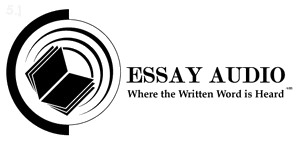
March 22, 2003
The historian Niall Ferguson called World War I "the greatest error in modern history." This mindless exercise to "make the world safe for democracy" kicked off the 20th century with 10 million corpses and a botched peace that gave us World War II, the Korean War, the Cold War, the Vietnam War, probably even our current war -- a hangover from the collapsed Ottoman Empire. But the Bush administration is not interested in history or its consequences; so it trots out the same old patriotic gore from 1914 to sink us into the Iraqi quagmire.
I have the feeling that support for this military enterprise -- and that only among Americans -- is, like the famous description of the Platte River -- a mile wide and an inch deep. In coffee shops, garages, hardware stores, wherever ordinary people gather in conservative western Minnesota, I find skepticism, even cynicism about the Iraq invasion. "It's all about oil," "Nothing we can do -- the big boys are going to shoot their guns," "Don't hear much about Enron or Osama bin Laden."
Despite the Fox channel and the talk shows, ordinary people are not idiots -- but they are sunk in a strange emulsion of passivity and despair. They have no large voice to say no to the approaching madness. Not even the pope, Jimmy Carter, Nelson Mandela, the grand old Republican Elmer Andersen, even the president's own father, provide the forum for the gathering together of the enormous skepticism about the bellicose saber-rattling rhetoric out of Washington. Where is that voice?
Dead, I'm afraid. For the last several months of war drumming, I've heard in my inner ear the undelivered speeches of Paul Wellstone, almost the only large public voice to stand up to Bush on the authorization of war powers. Wellstone seems to have been the last live conscience in the Democratic Party. Since his death, we are all war-Republicans of one variety or another. (I except Sen. Mark Dayton, an honest and decent man, but not a large and passionate voice.)
What might Wellstone have said had he lived -- and been re-elected to the Senate as he certainly would have? It's impossible to re-create that passionate voice, silenced forever in the North Woods, but he would certainly have said a large and eloquent No, and given strength and courage to millions of ordinary people to stand behind him. He would have made fierce dissent not only respectable, but patriotic -- even noble. To stop this unnecessary arrogant war in the bud is to love the United States in the best way. We do not reject the advice and good opinion of the entire world; we do not squander either our honor or our treasury to provide an armaments sales show; we do not buy allies with bribes; we do not do "preemptive strikes"; we do not jail "enemy combatants" without access to legal procedures; we might even try a little modesty, humility and generosity in our foreign policy; we might even try to use the United Nations wisely as an instrument to stop war -- the U.N. is after all a sort of Minnesota Republican invention. Remember Harold Stassen?
Instead of Wellstone's fierce and honest voice, we have a Senate loud with sycophantic toad croaks. Actors, writers, even popes seem unable to muster the large public voice necessary to make the Washington war machine take notice -- and with luck, retreat.
But Paul would have tried it with every ounce of energy in his wrestler's body to wake us up -- to restore us to our now shaky humanity. Oct. 25 was certainly the unluckiest day for the United States after Sept. 11, and in effect they may be comparable.
I was listening to the radio when the news came, and after sitting in stunned silence for a while, then weeping-- not only for Paul and Sheila and the rest, but for my country, I wrote this poem. It ends with the hope that he embodied, and that we must now, without him, try to bring to fruition in American life--and to stop this insane and unnecessary war that will prove an error the size of World War I and like that misadventure, hatch awful consequences that will bedevil us for another century--or more.
Bill Holm, a poet and essayist, teaches at Southwest State University in Marshall, Minn.
Paul Wellstone — October 25, 2002
On a gray sleety October day
The plane goes down in the north woods
With the large-hearted senator
Whose decency and respect for old ideals
Made half the citizens almost happy
To be Americans in a dark time.
Down went his wife and daughter too,
Three campaign workers, two pilots,
Eight in all, the radio says
Neglecting the ninth seat where Death
Dressed in an ordinary suit
Sat watching for his chance
To do a morning's harvesting.
Do you think he wasn't there
Hitching a ride, invisible, just as
He sat in the box at Ford's Theatre,
Held open the convertible door in Dallas?
He sits in the front seat of your car too,
Or waits feigning sleep with his head
Resting on the next pillow in your bed.
So we go on to write the same poem,
Sing the same sad song yet once more
Not for the dead who have gone
Over to the insensible kingdom
But for us who must now carry on
Without them. This time, as so often
Before, Death snatched a big one
Just when we could not stand to lose
His voice, that spoke, not just alone,
But for us millions who longed
For a world green, alive, about to bloom.
-Bill Holm
© 2002 Bill Holm, all rights reserved. EssayAudio.com
